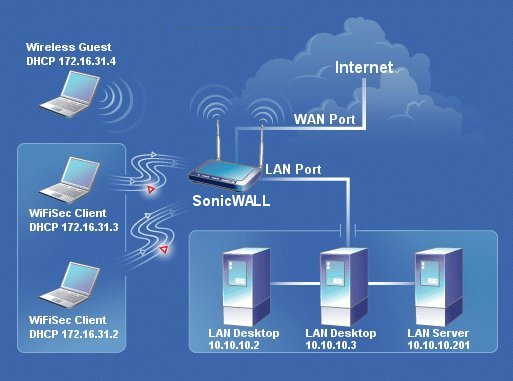

- #Sonicwall vpn setup with global vpn client how to
- #Sonicwall vpn setup with global vpn client windows
Route-based VPN tunnels are my preference when working with SonicWALL firewalls at both ends of a VPN tunnel as they are more flexible in that the end-point subnets do not need to be specified (custom routes are created instead) meaning clashes between end-point subnets can be avoided. For Route-based VPN tunnels: Edit the custom route for the VPN tunnel and uncheck the Auto-add Access Rules checkbox.Note that if other traffic types are traversing the VPN tunnel, you will need to manually create rules for those, as well as the new RDS-specific rule. For Policy-based VPN tunnels: Edit the VPN tunnel, navigate to the Advanced tab and check the Suppress automatic Access Rules creation for VPN Policy checkbox.To address this, I recommend creating your own custom firewall rules and preventing the automatic creation of rules (which is more secure as not all services must be opened) which is achieved as follows: However, it is important to do this only for firewall rules covering just RDS traffic as otherwise the timeout for all traffic is changed which can result in excessive numbers of inactive connections accumulating on the firewall and consuming resources.Ī common issue with implementing the above for VPN tunnel firewall rules is that SonicWALLs, by default, automatically create the firewall rules associated with the VPN tunnels and these auto-generated rules cover all traffic types between the end-points. Based on experience, I recommend this is changed to at least 120 minutes.Ĭhanging the TCP Connection Inactivity Timeout value is straightforward simply edit the appropriate firewall rule, navigate to the Advanced tab and change the setting there. Although one might consider that an active RDS session should not be considered inactive by the SonicWALL, in practice this value can indeed cause the RDS connections to be dropped.

When creating a firewall rule in SonicWALL firewalls, the TCP Connection Inactivity Timeout is set to 15 minutes by default. In my experience, the single biggest cause of dropped RDS connections over VPN tunnels is due to TCP timeout settings that are too low.
#Sonicwall vpn setup with global vpn client how to
The sections below describe how to achieve best RDS performance over SonicWALL site-to-site VPN tunnels and many of the settings will also apply to connections using the software SonicWALL Global VPN Client (GVPNC), particularly PMTU since this can vary between different client Internet connections.Ĭonfiguration Items to Consider TCP Timeout This reconnection process can take anywhere between a few tens of seconds and a minute or more and is very disruptive for the end user. A momentary drop in connection can cause the RDS client to disconnect, freezing the screen for the end user until the RDS client automatically attempts to reconnect. RDP is a streaming protocol and is very sensitive to interruption in the connection. This article focuses on the latter, and specifically on providing such Remote Desktop Protocol (RDP) services via a site-to-site VPN tunnel using Dell SonicWALL firewalls at each end, because we experienced some issues with intermittent, recurring dropped connections and a web search showed that (a) we were far from the only ones and (b) no single website had provided a comprehensive solution.
#Sonicwall vpn setup with global vpn client windows
Here at Cantarus, our multi-purpose kalaniCloud hosting is used for a variety of different hosting requirements, from websites and backup data to email and Windows Remote Desktop Services (RDS), formerly Terminal Services (TS).


 0 kommentar(er)
0 kommentar(er)
